This has far larger implications that extend to many other states, where franchise laws have protected independent dealers, in some cases since the 1930’s, by not allowing OEM automotive manufacturers to sell directly to retail customers, or to even own a store within that state. Tesla has been battling this issue as the success of their latest product – the Tesla Model S – has driven their growth and rapid expansion. While they have prevailed in a few states (Washington, New York & Massachusetts), others have only taken a firmer stance against them – including Texas, Ohio and Virginia.
Ultimately the Supreme Court may have to determine the future of the Tesla direct sales model. Dealer lobbies insist that the current franchise system is needed to help protect consumers, but the quality of automobiles has drastically improved and the internet has allowed consumers to research and shop without ever having to visit a dealer.
While local dealers will always have some role to play in terms of service and sales their role in the consumer purchase path is far less critical than it was decades ago. And whether the owner of that dealer is an independent or OEM probably matters very little to the consumer; he or she only wants a fair deal and to be treated with respect, as well as have a trusted source to return to should there be any product issues. In this arena the OEM owned dealer would seem to actually have a better shot at providing what the consumer wants.
In addition, one has to compare the retailing of automobiles vs. other consumer products. Look at Apple. They have their own company owned stores in key locations and malls which can retail their own products and offer support. But they are not legally prevented from doing so by franchise laws. Why should the retailing of automobiles be any different?
To that point – a strong case could be made by Tesla that it is not attempting to retail the same old-fashioned internal combustion driven automobile which requires continuous oil changes and tune-ups due to their complicated engines and transmissions.
Instead - the Tesla product is a high-tech transportation machine powered by a completely different power train, virtually service free. It is supported by software which can be updated over-the-air (just like your cell phone), and the diagnosis of vehicle operating conditions can also be done over-the-air without having to visit a dealer. So at what point does new technology create a new product category which should be exempt from prior constraints which applied to all older products? It seems that Tesla has done precisely that.
So far Tesla has somehow side-stepped this franchise issue in California. But here it is loved and supported strongly by the state, being a California start-up, as well as being a larger and growing high-tech employer which also strongly represents the green California agenda. But California dealer groups are not happy about this for the same reasons as elsewhere, so it could likely become an issue here as well.
Tesla appears to have had strong customer support on this as most anti-OEM state dealer laws seem archaic, are not required for Tesla electric vehicles, and are not consistent across other products or industries. As for consumer rights, a free market for products is the best route, and this issue should really be about the consumer, not about the legal ownership of the dealer from which he wants to do business.
- Tesla: wrong move, New Jersey
- Tesla fans horrified to learn politicians lie and there is no free market in NJ
Written by Richard Hubert








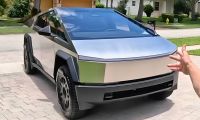
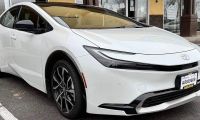
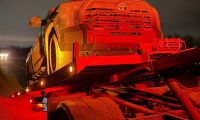
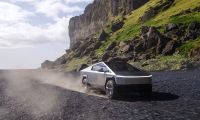
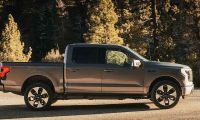
Comments
This is a well organized
Permalink
This is a well organized overview and I support Tesla selling direct. I will point out that the Tesla Model S is one of the most expensive cars to service and maintain sold at any price. A recent Tesla owner at a popular forum was gutsy enough to report her first year service bill by Tesla. It was done at 14,000 miles. She paid $1400 including 2 new tires (which cost about $400 each mounted). Don't take my word for it, look at the Tesla site and see what the costs are that Tesla lists for maintenance plans. Remember, the first year is free now with almost all makes, with Toyotas the first two years are free (included in the MSRP of the car). Of course you can ignore changing brake fluid, avoid rotating tires, avoid changing cabin air filters and the like on your $100,000 Tesla if you choose to. However, when the brake calipers freeze, the tread is gone just one side of your tires (21" Continental high performance tires), or the AC air stops coming out the vents, you will simply pay up then. Let's also not forget that Tesla's first recall (there have been 2) could not be done "over the air." It did require a trip to the service center. So they are batting 500. I offer this comment respectfully. The Model S is an amazing car, but it is a car.
I think the cost of the
Permalink
In reply to This is a well organized by John Goreham
I think the cost of the service which really can't include 2 new tires, of $600, is the listed price, but as I have noted before, even without an annual maintenance, warranty still holds. When it really got cold, my charging rate was half that of normal charging rate, and since it wasn't an emergency, I e-mailed Tesla. Within a couple of hours, they called me back to walk me through to determine the problem and some solutions. When that didn't work, they said that my "local" service center will call me, and they did with in less than 30 minutes, and said that they will send me a new charging cable FedEx overnight express, when I told them I got horrible FedEx service, instead of some other companies that said sorry we have a contract with FedEx, they agreed to send it via UPS. They also told me to call them back if it didn't work because they will send a Ranger, even when I reminded them that I am 300 miles from the service center and a big mountain pass that has been closed a couple times this winter. So my experience is that it is not the most expensive car to service and maintain. In fact, it is the cheapest of any vehicle I've had including ones that were 1/3 the ost. I have over 10,000 miles and no oil change and free service at my call 24/7. Of course, I paid for my winter tires, but that is no different than for any other vehicle and I did it at my Ford dealership, and I could have gotten it at any tire dealer.
Thanks Charlotte for letting
Permalink
In reply to I think the cost of the by Charlotte Omoto (not verified)
Thanks Charlotte for letting us know about the service you got from Tesla.
I think you are correct - that most items should be covered by their new vehicle warranty, and that usually only wear & tear items, like tires, would have to paid by the owner.
It was also good to know about your service costs - or lack of them. Even though Tesla does sell a service plan, as you say, I would not expect that there are nearly the number of service items to check compared to a petro-powered car. Thanks again.
What NJ has done is not renew
Permalink
What NJ has done is not renew Tesla's Retail license to sell vehicles from their 2 NJ "showrooms" Apparently their current license expires at the end of this month.
However, as in Texas, and most other states, there is nothing to prevent a NJ resident from going to another state (most easily NY, Delaware, Maryland or Pennsylvania) and buying from a Tesla dealer there. They would then have to register their car to their home NJ address, at the NJ DMV, and at such time would then also have to pay all NJ State & Local Sales & Use Taxes, and any other NJ state fees (if any) based upon their purchase price of the vehicle. The disadvantage to the retail consumer in doing this is that they would not have been able to include the Sales taxes within the total financing of the vehicle, if they indeed financed it. Sales taxes would have to be paid in full, in cash, at the time of registration. But for someone able to purchase a $100k+ car this is not likely an issue.
This is how most states handle this type of situation. They really do not care where you buy your cars as long as they collect all the Sales Taxes on them (because it adds up to a lot of revenue).
I have to do more research on the exact, recent NJ actions. I would be astonished if they actually tried to prevent the registration of any particular brand of vehicle in NJ as long as such vehicles complied with all state and Federal requirements (mostly pertaining to emissions compliance, safety and labeling). And Teslas would of course be compliant.
I believe that the most which the state of NJ can do is prevent Tesla from acting as a dealer and completing sales of Teslas from a facility within NJ state borders.
To elaborate on the previous
Permalink
To elaborate on the previous comment, the way Tesla vehicles are bought by Texans despite the ban on direct sales is described as follows at http://thinkprogress.org/climate/2014/03/12/3395091/new-jersey-banned-tesla/ In Texas, where the ban is already in place, Tesla stores still exist but staff cannot offer any useful information about the car (such as costs and specs), or permit test drives. All they can do is direct potential customers to the website, where they can buy the cars from a California dealership, which will ship the car to their house in an unmarked transport with no new-car orientation. Even so, over 1,000 Teslas have been sold in Texas.
I thought, that US is land of
Permalink
I thought, that US is land of freedom. To a Finn this is absurd limitation of the retail bussiness.